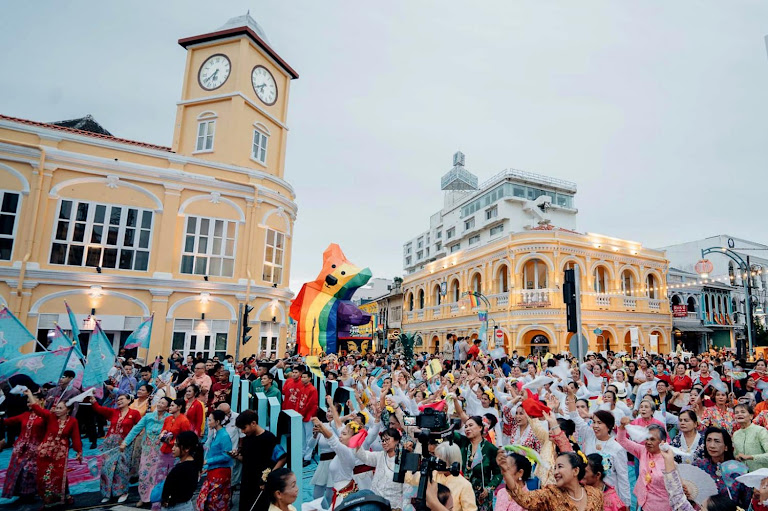Phuket Festival Boosts Economy: We Inject 400 Million Baht
Celebrating Straits Chinese heritage, the festival strategically boosts the local economy by injecting over 400 million baht through cultural tourism.

The narrative of globalization often focuses on homogenization—the flattening of cultures under the weight of multinational corporations and digital platforms. But the story playing out in Phuket, Thailand, as it prepares for the Phuket Peranakan Festival 2025, offers a more nuanced, perhaps even hopeful, counterpoint. This isn’t just about a parade and a noodle cook-off, though those are certainly part of it. It’s about the deliberate cultivation and celebration of a specific cultural identity, and the calculated use of tourism as a tool for preservation and economic development.
The Peranakan, or Straits Chinese, are descendants of Chinese immigrants who settled in Southeast Asia, primarily in Malaysia, Singapore, and Indonesia, and adopted aspects of local culture. Their unique blended heritage, visible in their architecture, cuisine, and distinctive clothing known as Baba-Nyonya dress, offers a compelling example of cultural hybridity. Phuket, recognizing this unique asset, has strategically positioned itself as a center for Peranakan culture, not just for Thailand, but for the broader region.
The festival itself, now in its third year, aims to inject over 400 million baht into the local economy. That’s not a small figure, and it speaks to a larger trend: the increasing sophistication of cultural tourism. It’s no longer just about seeing the sights; it’s about experiencing a culture, participating in its rituals, and contributing to its preservation. This is exemplified by the deliberate inclusion of genuine community members as parade performers, rather than hired entertainers.
What makes Phuket’s strategy particularly interesting is its multi-pronged approach. The island isn’t just relying on its natural beauty; it’s actively building its cultural brand, as evidenced by its recent recognition by the Creative Economy Agency (CEA) and the International Festivals & Events Association (IFEA). This involves:
- Formal recognition: Seeking and obtaining prestigious awards, like the Creative City Award.
- Strategic partnerships: Collaborating with organizations like the Thai International Events & Festivals Association (TIEFA) and the Peranakan Association of Thailand.
- Community engagement: Ensuring that the festival is driven by and representative of the local Peranakan community.
- Targeted marketing: Appealing specifically to tourists interested in cultural experiences, particularly Chinese tourists who enjoy donning Baba-Nyonya costumes.
- Innovation: Attempting to set a Guinness World Record with a mass noodle-cooking event.
The Phuket Peranakan Festival is not merely a display of cultural artifacts; it’s a deliberate intervention in the narrative of globalization, a proactive attempt to shape the island’s identity and economic future by harnessing the power of cultural tourism.
However, this strategy raises some crucial questions. Can cultural tourism truly be a sustainable model for preservation, or does it inevitably lead to commodification and inauthenticity? Who benefits most from this economic activity? And what measures are in place to ensure that the Peranakan community retains control over its own narrative and doesn’t simply become a spectacle for outsiders? The answers to these questions will determine whether Phuket’s experiment serves as a genuine model for cultural preservation or just another chapter in the ongoing story of tourism’s complex relationship with local cultures.









